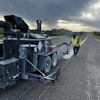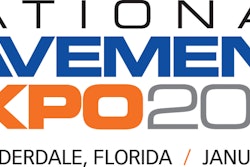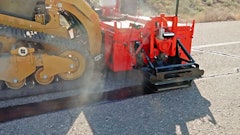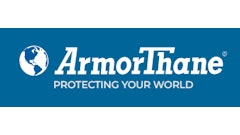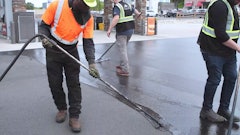For years PavementCouncil.org (also known as Pavement Technology Coatings Council) has been battling misinformation and exaggerations from the U.S. Geological Survey (USGS) in Austin that has sometimes resulted in localized bans of refined tar sealer (RTS). In addition to its efforts educating communities and legislators throughout the country, this year alone PavementCouncil.org has filed three Data Quality Act (DQA) challenges (See Hot Mix, page 6 and PCTC column page 39) with a fourth DQA in the works.
And in September PavementCouncil.org’s efforts received scientific support when two presentations were presented at the International Symposium on Polycyclic Aromatic Compounds (ISPAC) Sept. 8-12 in Corvalis, OR. The research that formed the backbone of the presentations was funded by PavementCouncil.org but the scientists conducting the research are outside the organization.
Use of Receptor Models to Evaluate Sources of PAHs in Sediment used data obtained from the USGS via the Freedom of Information Act to replicate published USGS modeling and test the results against both a negative control and a model run using different input parameters for RTS. The full presentation is available at www.PavementCouncil.org, but one of its conclusions is that the USGS hypothesis that RTS is a significant source of PAHs in sediments is not supported by receptor models, which are commonly used mathematical models intended to help identify sources of environmental pollution. (Evaluation of the USGS use of receptor modeling forms part of the basis for PavementCouncil.org’s first Data Quality Act (DQA) challenge, which is also available on the website.)
A second presentation, Risk Assessment for Coal-Tar-Based Pavement Sealants, reviewed a recently completed peer review of a risk assessment collaboration between Baylor University and the USGS. The peer review documents the exaggerations and unexplained violations of risk assessment guidance in the Baylor/USGS effort. This presentation and the peer review report also are available on the website.
The point is that PavementCouncil.org has been and is at the forefront of defending the sealcoating industry – and as the group has said all along the study results on which the USGS refined-tar witch hunt is based are at best blown out of proportion and at worst intentionally misrepresented to the industry and the country.
In addition to its own analysis of USGS studies PavementCouncil.org now has the backing of scientists outside the organization – independent corroboration of what PavementCouncil.org has been telling us all along.



